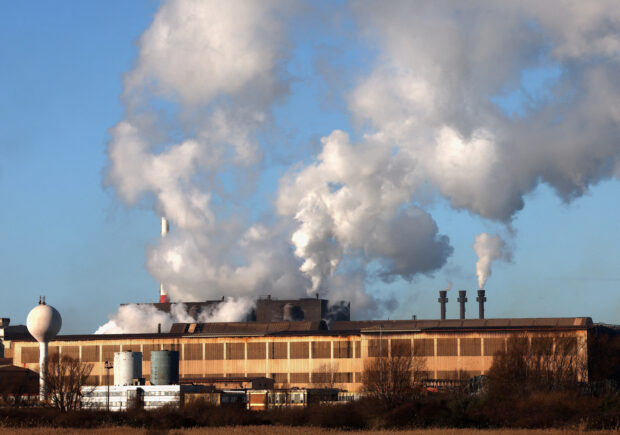Pro-environment groups air concerns over climate damage fund

(REUTERS/Yves Herman/File photo)
MANILA, Philippines – Several Philippines-based environmental groups expressed concern on Wednesday over the operationality of the loss and damage fund (LDF) at the COP28 United Nations (UN) climate summit in Dubai.
The fund, which was launched on the summit’s first day (November 30), sought to help vulnerable countries cope with the costly and damaging impact of climate disasters.
IBON International, however, assailed the summit’s decision to let the World Bank host the fund for the next four years despite resistance from developing nations.
“Our position as IBON International is that the World Bank is not fit as host of the LDF given its history of financing fossil fuel projects, donor-driven lending model and undemocratic governance structure,” the group told Inquirer.net.
Article continues after this advertisementIBON noted that the LDF should instead be hosted by a stand-alone operating entity with a board composed of delegates from developing countries, affected communities, and civil society organizations.
Article continues after this advertisementIn its opening statement at Cop28, the group, along with other Philippines-based organizations, pointed out that developing countries contribute the least to climate change but suffer the most.
This disproportionate impact, therefore, justifies the move to give a bigger role to vulnerable countries in the management of the fund, the group stressed.
For fisherfolk group Pambansang Lakas ng Kilusang Mamamalakaya ng Pilipinas (Pamalakaya), the previous pledges for the LDF is not enough.
“The amount pledged so far is actually a drop in the ocean compared to the extent of damage by disasters to the vulnerable communities over the past decades,” Pamalakaya said in a statement on Wednesday.
A UN report estimated that $387 billion is needed annually for the climate change adaptation measures of developing countries.
So far, initial pledges from the United Arab Emirates, Germany, United Kingdom, United States, and Japan have amounted to $420 million – not even one percent of the target.
Pamalakaya also pointed out that the fund-raising mechanism for the LDF should be mandatory, not voluntary, in respect to historical climate accountability.
This means that countries who contribute more to the climate crisis would be obliged to pledge more money for the fund.
“We will be vigilant on the crucial climate finance and demand that this should directly go to communities that have been devastated by climate change-induced disasters such as drought, sea-level rise, storm surges, and other ecological disturbances that affect economic activities,” the fishers’ group added.
Meanwhile, the Department of Environment and Natural Resources (DENR) lauded other countries present at COP28 for agreeing to launch the LDF.
In a previous statement, DENR Secretary Maria Antonia Yulo Loyzaga said that the LDF is a “hard-fought outcome that would enable us to catalyze assistance for the irreversible impacts of climate change such as extreme weather conditions and slow-onset events which are beyond our ability to finance.”
COP28 began on November 30 and will continue until December 12.